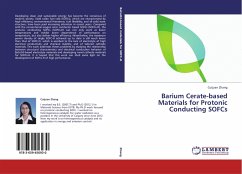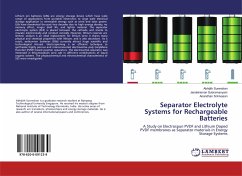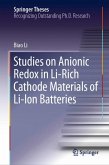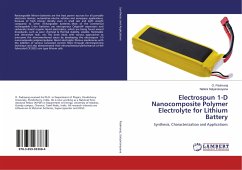Developing clean and sustainable energy has become the consensus of modern society. Solid oxide fuel cells (SOFCs), which are characterized by high efficiency, environmental friendness, fuel flexibility, and all solid state structure, have been paid increasing attention in recent years. Compared with the conventional oxygen ionic conductor based SOFCs (SOFCs-O), the protonic conducting SOFCs (SOFCs-H) can not only work at lower temperatures and exhibit lower dependence of performance on temperature, but also deliver higher efficiency. Nevertheless, the maximum power density of single SOFC-H achieved up to date is still much lower than that of SOFC-O, which is ascribed to the lack of electrolyte of high electrical conductivity and chemical stability, and of tailored cathode materials. This work addresses theses problems by studying the relationship between structural characteristics and electrical conduction behavior of BaCeO3-based electrolyte materials and developing novel cathode materials for SOFCs-H. It is hoped that this work can shed some light on the development of SOFCs-H of high performance.
Hinweis: Dieser Artikel kann nur an eine deutsche Lieferadresse ausgeliefert werden.
Hinweis: Dieser Artikel kann nur an eine deutsche Lieferadresse ausgeliefert werden.








